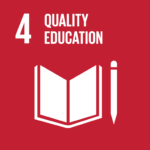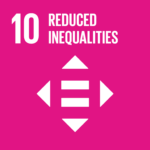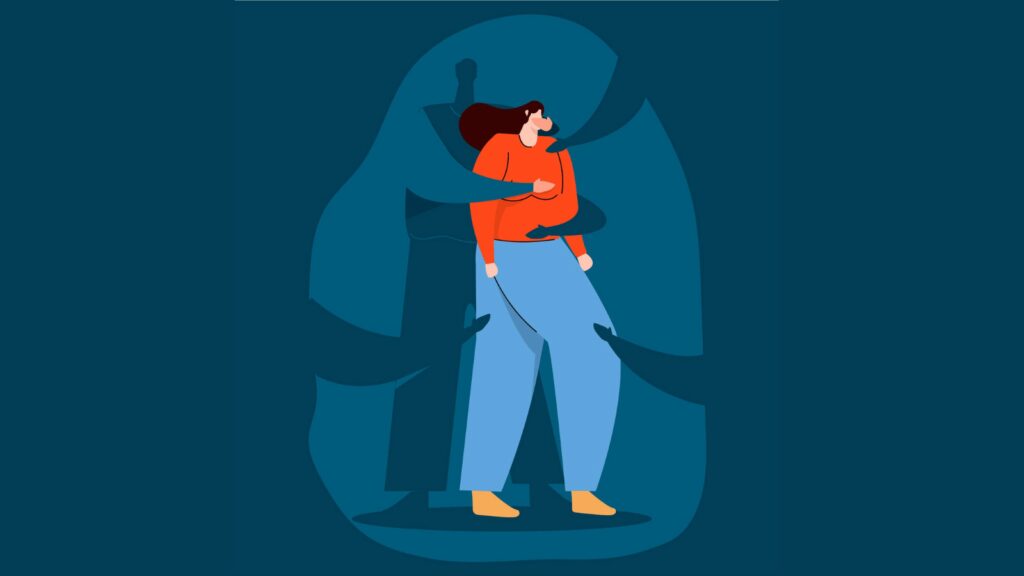Want to fight to end gender-based violence ? Here’s how you can be an ally
Almost one in every three women has been abused at some point in her life. The numbers increase during times of crisis, as seen during the COVID-19 pandemic and recent humanitarian crises, conflicts, and climate disasters. According to a new UN Women report based on data from 13 countries since the pandemic, two out of every three women have experienced some form of violence. They are more likely to face food insecurity. Only one out of every ten women said they would seek assistance from the police.
There has never been a more critical time to take an active role in ending gender-based violence (GBV). Being an ally in the fight begins with knowledge and is followed by deliberate action. Learn how to do it here.
RELEVANT SUSTAINABLE GOALS


1. SHOW UP WHERE IT MATTERS
Being a victim of gender-based violence is a terrifying experience. It has the potential to be isolating, if not alienating. This experience includes confronting perpetrators while sharing their testimonies, which can be traumatic.
You can begin by normalizing court support for survivors of violence in our communities. This will go a long way toward ensuring that justice is served and perpetrators are held accountable for their actions. Next, create a safe space in your community where survivors can continue rebuilding their life without being judged or mocked.
Survivors are frequently not in a mental state to seek help on their own. This is where you come in as an ally. First and foremost, listen to the stories of survivors to their stories. Listening is often the simplest yet most important thing we can do as allies. Listen to survivors tell their stories, whether in person, over the phone, or via text message.Have faith in them.
We should not question them as allies. Questioning does not only imply doubting the veracity of their stories. Victim blaming is also included. Do not inquire as to what they were wearing. Do not inquire as to what time of night it occurred. It makes no difference to their situation.
Further more, educate yourself. Discover the mental and physical health risks that survivors face. Investigate local helplines and healthcare providers. Finally, look into how survivors can file a legal claim.
2. DITCH THE TOXIC ‘BRO CODE’ AND CALL FOR VIOLENCE
The ‘bro code’ is a type of male friendship etiquette based on a largely unspoken set of rules to maintain mutual respect and consideration. Sounds innocuous, doesn’t it? However, the issue is that this can lead to a toxic pattern of domestic abuse if, for example, a man hears his friend verbally abusing their wife or girlfriend but turns a blind eye to ‘keep the peace.’ When you remain silent and do not call out such friends, perpetrators will (likely) continue the abuse.
3. BE PART OF THE CONVERSATION
Even if you are not a direct victim, gender-based violence is a problem for both men and women. Allyship does not have to begin after sexual abuse has occurred. Being an ally means being involved in the issue at all times.
One way to be an active ally is to raise awareness. Educate yourself first, and then spread the word. You could accomplish this with straightforward actions. When one of your friends makes a ‘rape joke,’ speak out against it. Educate them on why this is wrong. Stop it the next time one of your friends shames a woman. Make them aware of how it contributes to rape culture. To raise awareness, you do not have to host workshops or volunteer. You can raise awareness in your daily life by saying no to casual sexism.
Many of us have witnessed sexual abuse against others in our own homes. Speak up if you can do so. Intervene. Prevent this from happening. It doesn’t matter if the abuser is your own father! If it is too dangerous to intervene directly, try to speak up in other ways. You have the option of reporting the abuse to the authorities. You can try to speak with the survivor and ask how they would like to be helped. Speak up while keeping your own and the survivor’s safety in mind.
The article was initially published on 30th November 2021.


